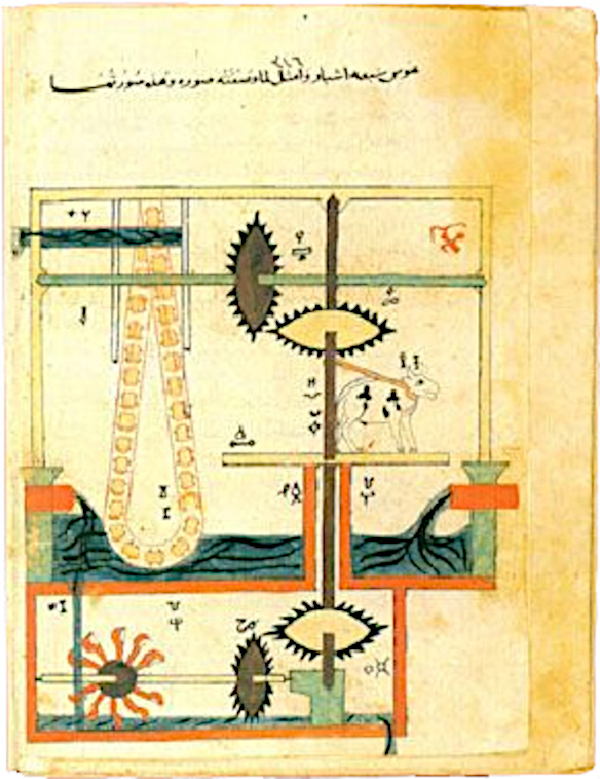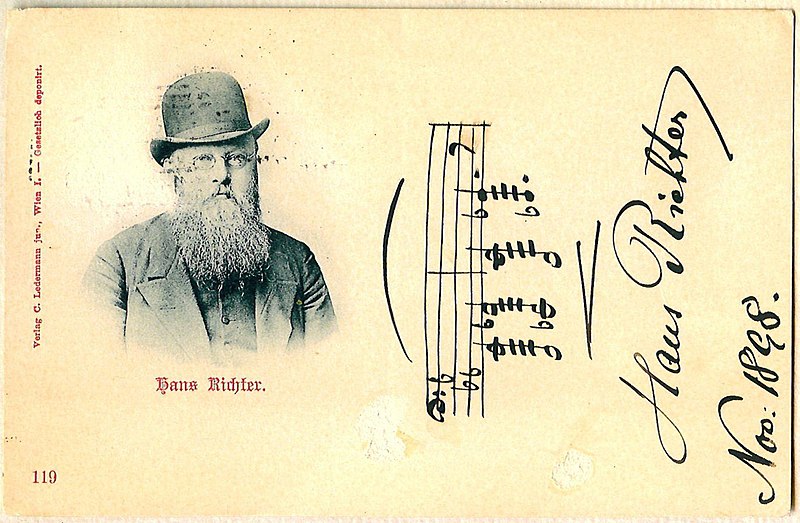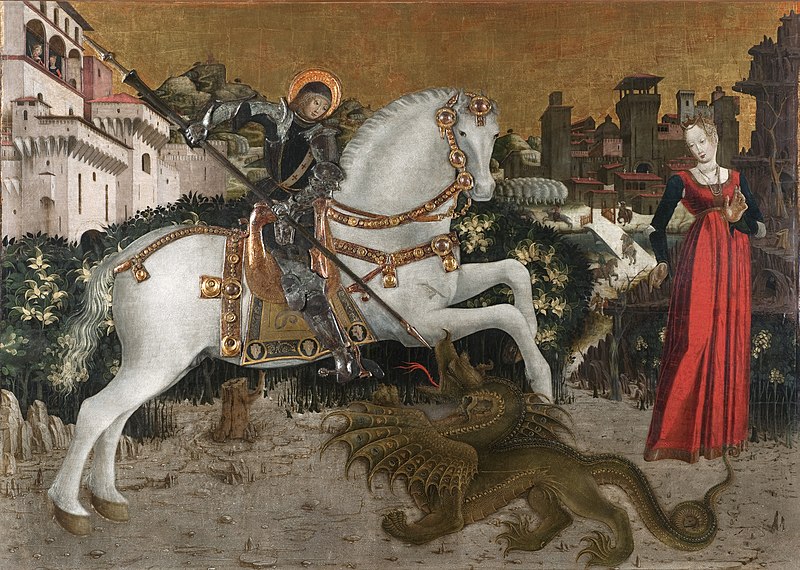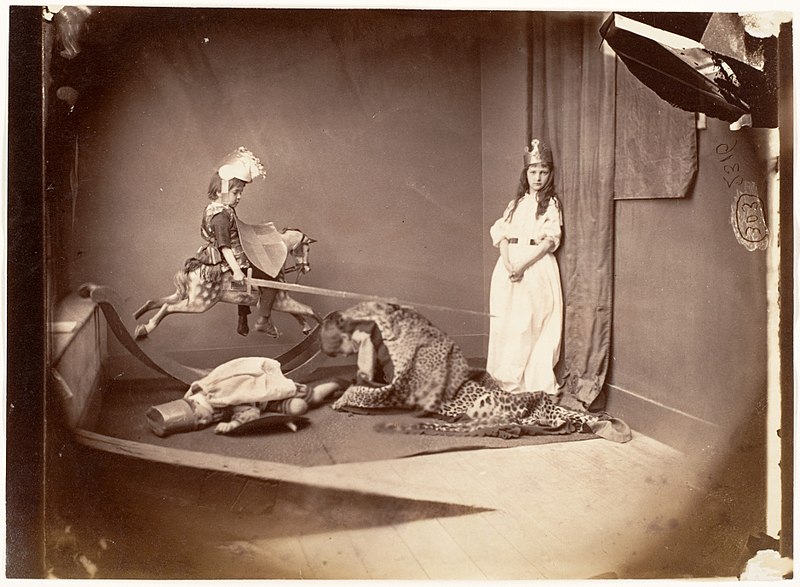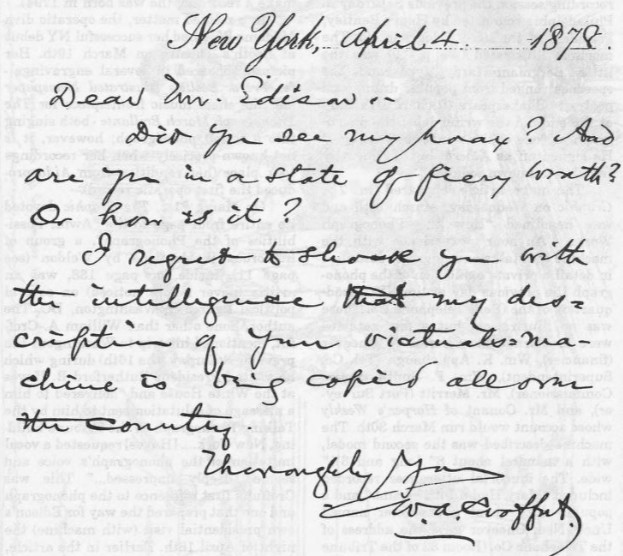
The April 1, 1878, issue of the New York Daily Graphic announced that Thomas Edison had invented a “victuals machine” that would feed the human race:
I made all this food out of the dirt taken from the cellar and water that runs through these pipes. … I believe that in ten years my machines will be used to provide the tables of the civilized world. … I can make cabbages and oranges that have never felt the rain. Nature is full of surprises. Bananas and chocolate can be made out of the very same ingredients, and the methods of combining differ only a trifle.
The last paragraph revealed that the story was a hoax, but many readers didn’t get that far — several newspapers picked up the news, and some readers even tried to order the device. Reporter William Augustus Croffut, who’d concocted the tale, wrote diffidently to Edison on April 4 (above), “Did you see my hoax? And are you in a state of fiery wrath? Or how is it?”



